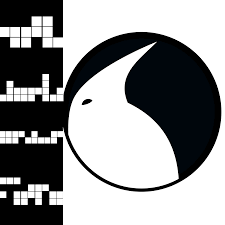open communication
See the following -
Real Business Innovation Begins with Open Practices
 To business leaders, "open source" often sounds too altruistic—and altruism is in short supply on the average balance sheet. But using and contributing to open source makes hard-nosed business sense, particularly as a way of increasing innovation. Today's firms all face increased competition and dynamic markets. Yesterday's big bang can easily become today's cautionary tale. Strategically, the only viable response to this disruption is constantly striving to serve customers better through sustained and continuous innovation. But delivering innovation is hard; the key is to embrace open and collaborative innovation across organizational walls—open innovation...
To business leaders, "open source" often sounds too altruistic—and altruism is in short supply on the average balance sheet. But using and contributing to open source makes hard-nosed business sense, particularly as a way of increasing innovation. Today's firms all face increased competition and dynamic markets. Yesterday's big bang can easily become today's cautionary tale. Strategically, the only viable response to this disruption is constantly striving to serve customers better through sustained and continuous innovation. But delivering innovation is hard; the key is to embrace open and collaborative innovation across organizational walls—open innovation...
- Login to post comments
Usability And Accessibility Start With Open Communication
 Amazing though it may seem, we each experience the world differently. That's one reality with over 6 billion interpretations. Many of us use computers to broaden our experience of the world, but a computer is part of reality and so if you experience reality without, for instance, vision or sound, then you also experience a computer without vision or sound (or whatever your unique experience might be). As humans, we don't quite have the power to experience the world the way somebody does. We can mimic some of the surface-level things (I can close my eyes to mimic blindness, for example) but it's only an imitation, without history, context, or urgency. As a result of this complexity, we humans design things primarily for ourselves, based on the way we experience the world. That can be frustrating, from an engineering and design viewpoint, because even when you intend to be inclusive, you end up forgetting something "obvious" and essential, or the solution to one problem introduces a problem for someone else, and so on. What's an open source enthusiast, or programmer, or architect, or teacher, or just everyday hacker, supposed to do to make software, communities, and processes accessible?
Amazing though it may seem, we each experience the world differently. That's one reality with over 6 billion interpretations. Many of us use computers to broaden our experience of the world, but a computer is part of reality and so if you experience reality without, for instance, vision or sound, then you also experience a computer without vision or sound (or whatever your unique experience might be). As humans, we don't quite have the power to experience the world the way somebody does. We can mimic some of the surface-level things (I can close my eyes to mimic blindness, for example) but it's only an imitation, without history, context, or urgency. As a result of this complexity, we humans design things primarily for ourselves, based on the way we experience the world. That can be frustrating, from an engineering and design viewpoint, because even when you intend to be inclusive, you end up forgetting something "obvious" and essential, or the solution to one problem introduces a problem for someone else, and so on. What's an open source enthusiast, or programmer, or architect, or teacher, or just everyday hacker, supposed to do to make software, communities, and processes accessible?
- Login to post comments
Why Universities Choose Open Source Collaboration Software
 Higher education institutions are actively looking for ways to adapt to rapidly improving technology and enable students to use advances in computing to study, collaborate, and learn in new ways. Many institutions have been using open source software to exchange knowledge more easily, ensure a better learning experience, and handle administration with fewer worries. Demand for open source software in higher education is drastically increasing especially as the need for remote learning grows.
Higher education institutions are actively looking for ways to adapt to rapidly improving technology and enable students to use advances in computing to study, collaborate, and learn in new ways. Many institutions have been using open source software to exchange knowledge more easily, ensure a better learning experience, and handle administration with fewer worries. Demand for open source software in higher education is drastically increasing especially as the need for remote learning grows.
- Login to post comments